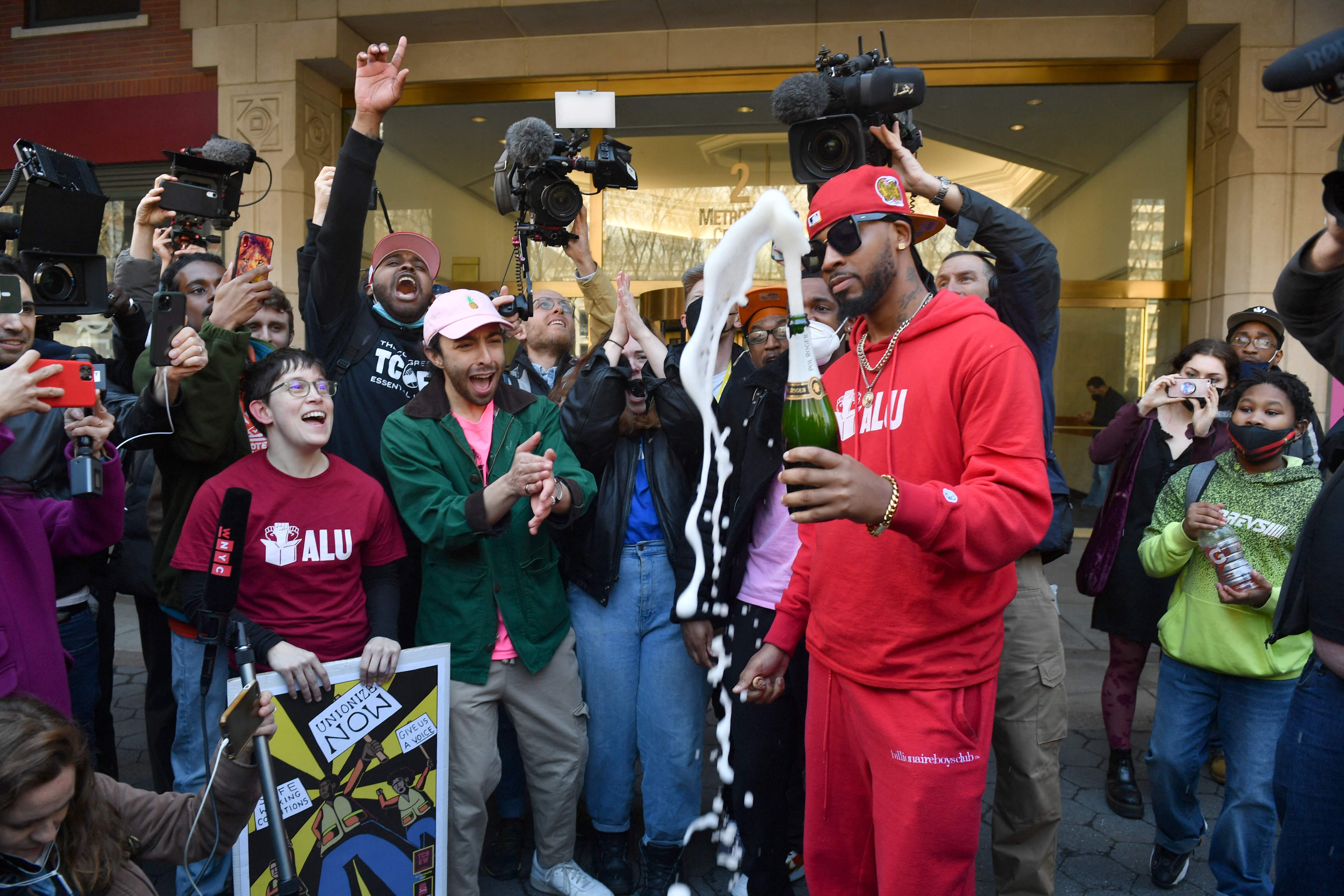May Day is for standing in solidarity with workers around the world
It is our unions and grassroots movements that give us the power to demand better. We can address the cost of living crisis with coordinated working class action


Across the world, we are seeing workers fight for economic justice, against exploitation, and for the right to unionise. The victories of Amazon and Starbucks workers show us that organising for better pay and conditions is possible.
The May Day celebrations were brought to us by the trade union movement, and today, whilst in the middle of a cost of living crisis, understanding the origins of International Workers Day is more important than ever.
International Workers Day came from industrial action and union-backed protest that started in America when unions organised an unsuccessful struggle for an eight hour workday, leading to a national strike on 1 May 1886. Every year that followed, massive union rallies would be held across the world on 1 May, but it took the bargaining power from the First World War to force the government to introduce eight hour days.
If we look at the current victories for workers in the US, history was made when the first ever Amazon workers unionised, whilst Amazon has been reported to continue to wage an aggressive anti-union campaign against these employees. Starbucks workers at more than 225 US locations have filed to unionise their stores, and argue that the company is engaged in union-busting tactics in retaliation.
We are seeing a resurgence of workers demands, fuelled by the cost of living crisis and the pandemic, giving us the potential for more worker power to build on and leverage than ever before. Throughout history, any progress that has been won has been fought for through collective movements and through organising of the ordinary people. It’s our only solution.
We are continuing to see a Labour Party that does not care for the working class, and is very willingly to use racialised people and the most vulnerable groups in society as scapegoats. But migrants, refugees and asylum seekers are not the enemies. They are not increasing inflation, they are not taking away your wages.
This is why we must look outside of party political organising, towards unions and grassroots organisations. The revolution is happening, in whispered conversations, in backroom meetings and over Zoom. We are seeing it across the UK, with tenants collectively organising against landlords, local communities organising against developers, school children against police, anti-raid groups against the racist hostile environment.
A UK national strike is needed, but for this to be a reality we must continue to build the movement. It is our unions and grassroots movements that give us the power to demand better. We can address the cost of living crisis with coordinated working class action targeting national and local decision makers.
To keep up to speed with all the latest opinions and comment, sign up to our free weekly Voices Dispatches newsletter by clicking here
Noam Chomsky recently said that “we’re approaching the most dangerous point in human history” with climate change and the threat of nuclear war, and whilst global leaders destroy our planet, the working classes and racialised people are always made to suffer the most.
When there are no more refugees or migrants to blame, you will be the next target. But we have the choice to reject this narrative. Our only hope is to stand in international solidarity with the working class across the world, because we are all fighting the same fight.
I leave you with a quote from Ursula K Le Guin’s speech at the National Book Awards in 2014, as relevant today as it was over seven years ago. “We live in capitalism, its power seems inescapable – but then, so did the divine right of kings. Any human power can be resisted and changed by human beings. Resistance and change often begin in art. Very often in our art, the art of words.”
Join our commenting forum
Join thought-provoking conversations, follow other Independent readers and see their replies
Comments
Bookmark popover
Removed from bookmarks